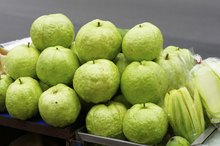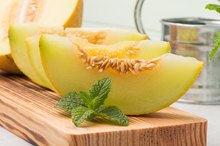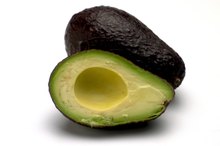Does Fruit Make Your Blood Sugar Go Up?
Don't let diabetes or blood sugar concerns stop you from eating fruit. Yes, it’s true that fruit does contain some natural sugars, and like any food with sugar or carbohydrate, fruit will cause a small rise in blood sugar. As a natural, whole, plant-based food, however, fruit is packed with fiber, which helps to slow how the body absorbs these sugars, dampening their effect on blood glucose, according to the Harvard School of Public Health.
Digestion of Fruits
Fruits are a rich source of fiber, and since the body cannot digest fiber, it must be extracted from the remaining macronutrients in the fruit. As a result, the sugars in fruit are assimilated into the blood much more slowly, causing a more manageable increase in blood sugar. Further contributing to the minimal impact fruit has on blood glucose are the inherent types of sugars in fruit. According to a 2002 article in the "American Journal of Clinical Nutrition," fructose, the most abundant sugar in most fruits, causes little to no increase in blood sugar because it is absorbed directly into the liver, while the remaining glucose present in fruit causes only a minimal impact on the blood sugar.
Fruit and Glycemic Load
Does Fruit Give You Energy?
Learn More
The glycemic load is a value that expresses a food’s relative impact on blood glucose given the total carbohydrates available in a typical serving and how quickly these carbohydrates are assimilated into the bloodstream, according to the Linus Pauling Institute. Foods with Low-GL values range from 1 to 10 and have a small overall impact on blood glucose. Medium-GL values range from 11 to 19, while high-GL food values are 20 and above, so they have a more significant impact on blood sugar. Most fresh fruits fall in the low-GL range of 1 to 10 with one common exception: bananas, which are medium-GL, according to the Sydney University Glycemic Index Research Services. Factors such as the degree of ripeness and processing such as canning will increase glycemic load slightly, while drying fruits has a significant impact, yielding medium- to high-GL values depending on the type of dried fruit.
Fruit and Diabetes
The American Diabetes Association recommends the inclusion of fruits as part of a healthy diet for people with diabetes. Take care, however, to count fruits as part of your daily planning of carbohydrate-containing foods. Furthermore, exercise portion control with dried fruit and especially fruit juices, since these fruit options have a greater impact on blood sugar levels. Eating fruit in moderation as part of your diabetic meal plan can be a healthy way to satisfy your sweet tooth, without spiking your blood glucose
Other Considerations
What Fruits Are High in Dextrose?
Learn More
If you are looking to include more fruits in your diet but are still concerned about limiting total sugar content and blood glucose impact, choosing fruits that have the lowest glycemic load value will further help minimize their impact. Fruits like sour cherries, most citrus fruits, apples, peaches, pears and most berries range from 1 to 5 in GL value, according to the Sydney University Glycemic Index Research Service.
Related Articles
References
Writer Bio
Robert Phillips holds a Bachelor of Science in dietetics, as well as a Bachelor of Science in psychology. He works as a health coach with Optimum Health Solutions of Peoria, Ill. Phillips has been writing on health and nutrition topics since 2011, specializing in areas of chronic disease prevention and wellness.









